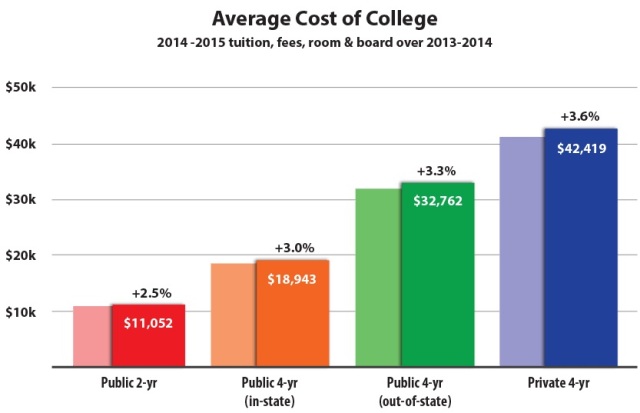Why Pay for College?
The graphic above represents the correlation between college education and debt which is a result of excessive college funds. Image from Value Colleges
May 19, 2017
For thirteen years of their lives, most children who go to school are blessed enough to not have to pay a penny for their education. Public elementary, middle, and high schools cost nothing directly to parents who seek to give their children an education. If this is the case for most childrens’ thirteen years of childhood, why is it not the case for four years of adulthood in the real world? College level education has been widely well known for being costly and financially crippling, but the question is why? Some may say it is because college prepares students for the real world and the career they intend to go into; however, if that is the case, high school does that as well. Why do students not pay for a high school education? Some argue that college professors have a vaster understanding of knowledge than high school teachers; therefore, requiring more money for their teaching. Why does a professor’s salary not come from the government like a public school teacher’s salary does?
Despite there being public universities and community colleges, nearly every college in America requires tuition for attendance. This tuition can be as low as $1000 per year to as high as $50,000 a year, which can result in a student loan debt costing more than $200,000 for a four year college education. The fear of such cost is what convinces most newly graduated high school students to defer from college and enter the workforce immediately after the completion of their diploma. If college did not require extensive tuition, more students who are fresh out of high school would go to college, receive a higher education, and contribute more to innovation and society.
Without the limits of college tuition, young adults will be able to attend the institution of their choice without the fear of drowning in student loans and other means of paying for their education. And the more people who seek a higher education means there are more people likely to seek higher paying jobs; therefore, raising the nationwide standard of living.




